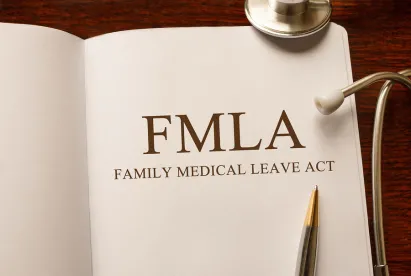On January 7, 2020, the U.S. Department of Labor published three new opinion letters – two that address compliance under the Fair Labor Standards Act (“FLSA”) and one that addresses compliance under the Family Medical Leave Act (“FMLA”) – that provide guidance on issues that employers are facing today.
In the first, the DOL gave advice concerning an employer’s nondiscretionary bonus payment of $3,000 where employees completed ten weeks of training and promised to complete eight more weeks of training. During the 10-week training period, employees only worked overtime in two of the ten weeks. The DOL opined that “because the employer pays the lump sum bonus to employees for completing the ten-week training and agreeing to additional training without having to finish the additional training, the lump sum bonus amount must be allocated to the initial ten-week training period.” The DOL further instructed that, “[b]ased on the facts provided, it is appropriate for the employer to allocate the lump sum bonus of $3,000 equally to each week of the ten-week training period. Each week of the ten weeks counts equally in fulfilling the criteria for receiving the lump sum bonus, as missing any week (regardless of whether the employee worked overtime in that week) disqualifies the employee from receiving the lump sum bonus.”
In the second, the DOL decided that a per-project payment method satisfied the salary basis regulations for exemption under the FLSA. The inquiry provided two proposals for how a company would pay its employees when those employees were assigned to projects that lasted various periods of time. The DOL opined in the first proposal that when the employee receives a predetermined amount that does not vary from week to week or month to month based on the number of hours worked, the payment satisfies the salary basis requirements. In the second proposal, where the employee is paid a bona fide salary plus additional compensation, even in the form of a weekly lump sum, the payment also satisfies the salary basis and extra compensation requirements under the regulations. The DOL also noted that where the fee for the project might be renegotiated during the course of the project, and even reduced, that the salary basis test can still be met so long as the salary meets the minimum threshold, and the changes to the weekly pay are not so frequent as to undermine the position that the employee is actually being paid a salary and not based upon quantity or quality of the work performed.
In the third, the DOL opined that a general health district is not required to consider all other county employees when determining whether one of its employees is eligible for FMLA leave. In its opinion, the DOL reasoned that the health district and the county did not appear to be a single public agency employer, after considering several factors such as: whether the health district had its own payroll and retirement systems, whether it had its own funding sources and budget, whether it hired its employees separate from any other agency, whether it could sue and be sued, and whether state law provided any clarity to the status of the entity. Applying these (and other) factors, the DOL concluded that the particular health district was an independent employer for purposes of determining the eligibility of its employees.





 />i
/>i

